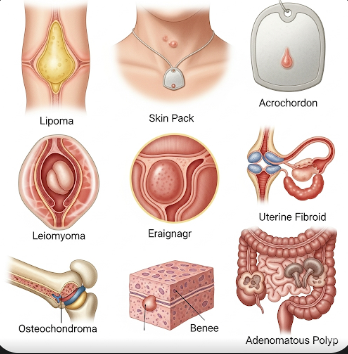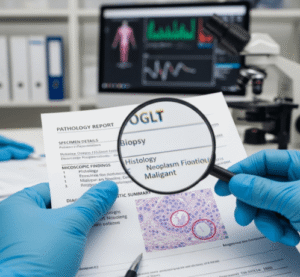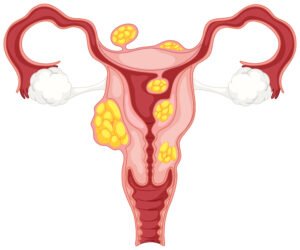Overview
Benign tumors are non-cancerous growths of cells that can appear in almost any part of the body, including the skin, organs, bones, and glands. Unlike malignant tumors, benign tumors do not invade nearby tissues or spread (metastasize) to distant organs. Although typically harmless, they may cause symptoms if they press on surrounding structures or grow large enough to interfere with normal bodily functions.
In Korea, advanced medical imaging, minimally invasive techniques, and surgical interventions are widely available for diagnosing and managing benign tumors. Patients benefit from early detection, accurate classification, and targeted treatment to prevent complications and maintain quality of life.
What is a Benign Tumor?
A benign tumor is a localized proliferation of cells that grows slowly and remains confined to its original tissue. While it can sometimes become large or cause discomfort, it generally does not pose a threat to life. Benign tumors can develop in various tissues:
- Soft tissues: lipomas, fibromas, and hemangiomas
- Bones: osteomas and enchondromas
- Glands: thyroid adenomas, pituitary adenomas
- Organs: liver, kidney, or brain benign masses
The key distinction from malignant tumors is that benign tumors maintain normal cell differentiation, grow slowly, and lack invasive or metastatic potential.
Symptoms
Symptoms of benign tumors vary depending on location and size:
- Visible lump or mass under the skin (lipomas, fibromas)
- Pain or discomfort if pressing on nerves, muscles, or organs
- Swelling or fullness in a body area
- Organ-specific symptoms, e.g.:
- Brain tumors: headaches, vision changes, seizures
- Thyroid adenomas: neck swelling, sometimes hormonal imbalance
- Liver tumors: abdominal discomfort, nausea
- Usually, benign tumors are asymptomatic and discovered incidentally during imaging for unrelated conditions
Causes
The exact cause of benign tumors depends on the type but may include:
- Genetic mutations that promote localized cell growth
- Hormonal imbalances, such as in breast fibroadenomas or thyroid adenomas
- Chronic irritation or inflammation, which can trigger growth in certain tissues
- Vascular malformations leading to hemangiomas
- Aging-related cell proliferation in various tissues
Risk Factors
Factors that increase the likelihood of developing benign tumors include:
- Family history or genetic predisposition
- Hormonal changes or therapies
- Chronic irritation or repeated injury to tissues
- Advanced age
- Certain metabolic or endocrine disorders
Complications
Although benign tumors are non-cancerous, complications may occur:
- Compression of adjacent organs or nerves, causing pain or functional impairment
- Cosmetic concerns, particularly for visible tumors such as facial or neck growths
- Bleeding in vascular tumors like hemangiomas
- Rare malignant transformation, e.g., certain adenomas may evolve into cancer if left untreated
- Interference with normal organ function depending on location
Prevention
There is no guaranteed way to prevent benign tumors, but certain measures may help reduce risk:
- Maintaining a healthy lifestyle and balanced diet
- Avoiding unnecessary exposure to hormones unless prescribed
- Monitoring and managing chronic health conditions
- Regular medical check-ups for early detection of lumps or organ abnormalities
Treatment Options in Korea
Diagnosis
In Korea, precise diagnosis is essential to distinguish benign from malignant tumors:
- Physical examination for palpable lumps or abnormal growths
- Ultrasound to assess soft tissue or organ-based tumors
- CT scans and MRI for detailed imaging and tumor mapping
- Biopsy if tumor type is uncertain or malignancy must be ruled out
- Blood tests for hormonal or organ-specific tumor markers
Medical Management
Many benign tumors do not require treatment and can be monitored with watchful waiting and regular imaging.
- Medications may be used in specific cases to shrink tumors or manage hormonal activity, such as thyroid adenomas or pituitary adenomas.
- Pain relief or anti-inflammatory drugs for symptomatic tumors pressing on nerves or muscles
Surgical and Minimally Invasive Procedures
For tumors that are symptomatic, growing, or cosmetically concerning, Korean hospitals offer advanced interventions:
- Surgical excision – complete removal of the tumor while preserving surrounding tissue
- Laparoscopic or robotic-assisted surgery for internal organ tumors
- Laser therapy for superficial or vascular tumors
- Embolization for vascular tumors like hemangiomas to reduce blood flow and shrink the growth
Rehabilitation and Support
- Regular follow-up imaging to ensure no regrowth
- Physical therapy if tumors affected mobility or nerve function
- Nutritional guidance and lifestyle counseling to support overall health
- Patient education on monitoring for recurrence or new growths
Prognosis
The prognosis for patients with benign tumors in Korea is excellent. Most benign tumors remain stable, respond well to treatment when needed, and do not progress to cancer. Early detection and appropriate intervention ensure minimal impact on quality of life, organ function, and overall health.













